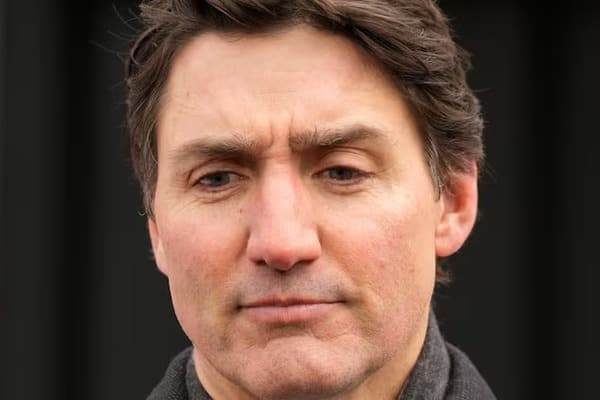Prime Minister Justin Trudeau has announced that he plans to step down once the Liberal Party selects a successor, bringing an end to his leadership of the country. Trudeau, who became the Liberal leader in 2013 and prime minister in 2015, made the long-anticipated decision outside his official residence, Rideau Cottage, on Monday morning. This announcement follows weeks of speculation about his political future and declining support from his own party. Trudeau, shared that he had reflected on his decision over the holidays and discussed it with his children over dinner on Sunday night. “This country deserves a real choice in the next election, and it’s become clear to me that if I’m having to fight internal battles, I cannot be the best option in that election,” he told reporters.
Trudeau also confirmed that he had met with Governor General Mary Simon, who agreed to prorogue Parliament until March 24. This decision sets the stage for a competitive leadership race to choose a new leader to challenge Conservative Leader Pierre Poilievre in the next federal election. Trudeau, 53, expressed his excitement for the leadership process that will unfold over the coming months. He had previously stated that he was the right person to face Poilievre, despite growing pressure to resign. Over the last year, support for Trudeau within his caucus had eroded, with at least three dozen MPs and several regional caucuses — including from Atlantic Canada, Quebec, and Ontario — calling for his departure.
Trudeau’s political troubles intensified after Chrystia Freeland, once considered his top ally, resigned as finance minister and deputy prime minister last month. She cited her disagreements with Trudeau over his handling of the economy, particularly his offer to move her to a new role managing Canada-U.S. relations. In her resignation letter, Freeland criticized Trudeau’s “costly political gimmicks” and acknowledged the growing rift between them. While Trudeau addressed Freeland’s departure briefly on Monday, he declined to disclose the specifics of their private conversations. Freeland, in turn, posted a message on social media thanking Trudeau for his service.
Trudeau’s resignation comes amid heightened tensions with the U.S. over trade, especially following incoming U.S. President Donald Trump’s threats of a 25% tariff on all Canadian imports. This situation further complicates Canada’s response to the trade standoff, with Trudeau’s departure introducing additional uncertainty. Trump responded to the news of Trudeau’s resignation on social media, reiterating his claims that Canadians would benefit from merging with the U.S. and highlighting the potential economic advantages.
Trudeau’s prorogation of Parliament effectively halts all parliamentary activity until late March, buying time for the Liberals to organize a leadership contest. However, opposition parties are eager to bring down the government as soon as possible. Prorogation freezes current bills and committee work but leaves the government in power. Trudeau explained the move was to reduce the political temperature and give Parliament a fresh start in the midst of complex domestic and international challenges.
The speculation around who might replace Trudeau as Liberal leader includes prominent figures such as Freeland, cabinet ministers like Dominic LeBlanc, Mélanie Joly, Anita Anand, and François-Philippe Champagne, as well as former Bank of Canada Governor Mark Carney and former B.C. Premier Christy Clark.
Conservative Leader Poilievre dismissed Trudeau’s resignation, asserting that it changes nothing and accusing discontented Liberal MPs of acting out of self-interest. Poilievre criticized them for wanting to remove Trudeau to protect their positions ahead of the election. Meanwhile, NDP Leader Jagmeet Singh, who ended his party’s support for the Liberal minority government in September, stated his party would vote to bring down the government at the earliest opportunity and argued that Canadians should not support any Liberal leader, as the issue was systemic within the party.
Trudeau, who first came to power in 2015 on a platform of feminism, environmentalism, and reconciliation with Indigenous communities, faced significant challenges throughout his tenure. His government introduced landmark initiatives such as the legalization of marijuana, the Canada Child Benefit with a commitment to $10-a-day child care. However, his political image was tarnished by various controversies, including the SNC-Lavalin scandal and the WE Charity affair.
Although Trudeau’s Liberals were re-elected in 2019 and 2021, both times in minority governments, his tenure was marked by ongoing global and domestic crises, including the COVID-19 pandemic and trade negotiations with the U.S. Trudeau’s handling of the pandemic, particularly lockdown measures and economic support programs, was met with mixed reactions. His government also invoked the Emergencies Act to clear protests in early 2022, a decision that remains contentious.



